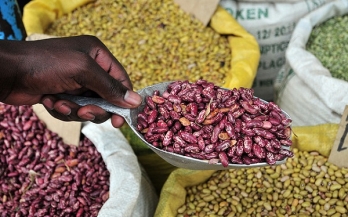In April 2025, we took part in the Act4Food Youth Leaders Workshop held in Arusha, Tanzania, a truly transformative experience that deepened our already strong convictions of the power and potential of young people to shape the future of our food systems. Organized by ACT4FOOD with support from the Global Alliance for Improved Nutrition (GAIN), the workshop brought together 22 youth leaders from across the globe working under the ACT4FOOD banner, along with GAIN staff and additional food systems youth leaders from Tanzania.
In Tanzania, 85- 90% of the land is cultivated by smallholder farmers majority of whom face challenges in getting access to quality seeds and assured markets for their produce, thus limiting their capabilities to produce quality produce and generate steady income. Currently, 57% of pregnant women in Tanzania are anemic. Additionally, according to the Tanzania Demographic and Health Survey 2015 (TDHS), 58% of children under the age of 5 years in the country were anemic.
This video showcases GAIN’s collaboration with Buguruni Market (Dar es Salaam, Tanzania). It illustrates the early testing of the Food Systems Governance model; highlighting the importance of i) knowing the local food system, ii) One Nutrition (nutrition, food hygiene and safety, reduced food waste), and iii) engaging multiple stakeholders to co-design and support infrastructure investments that enhance vendor livelihoods, as well as improve the quality, safety, and value of food stored, upcycled, and sold to consumers.
Around 130’000 school children in Tanzania are benefiting from eating fortified nutrient-dense meals through an initiative led by the Global Alliance of Improved Nutrition (GAIN) to help address the prevalence of chronic malnutrition in the countryWith a population of 64 million, Tanzania suffers from high rates of micronutrient deficiencies with one-third of children deficient in iron and vitamin A. Lack in such micronutrients for teenagers and young adults could impair their growth, learning capacity and development, and put them at risk of non-communicable diseases with consequential impact in later life.






